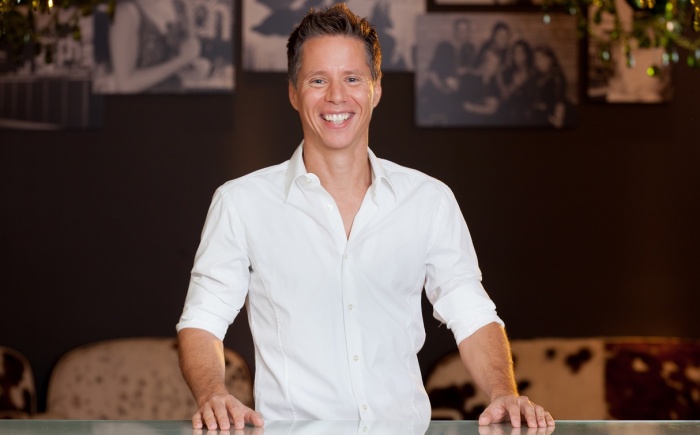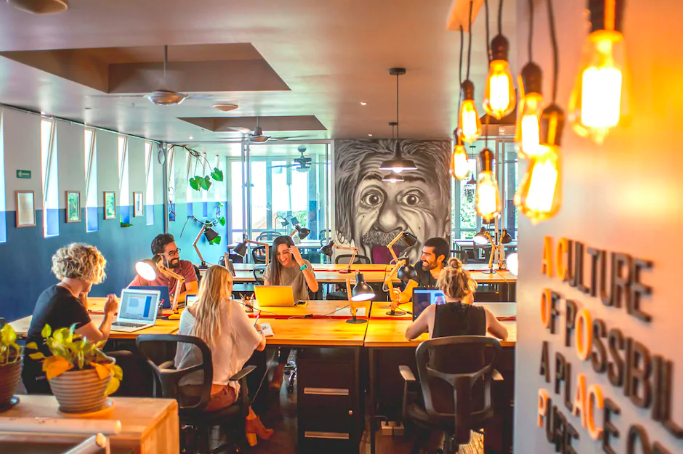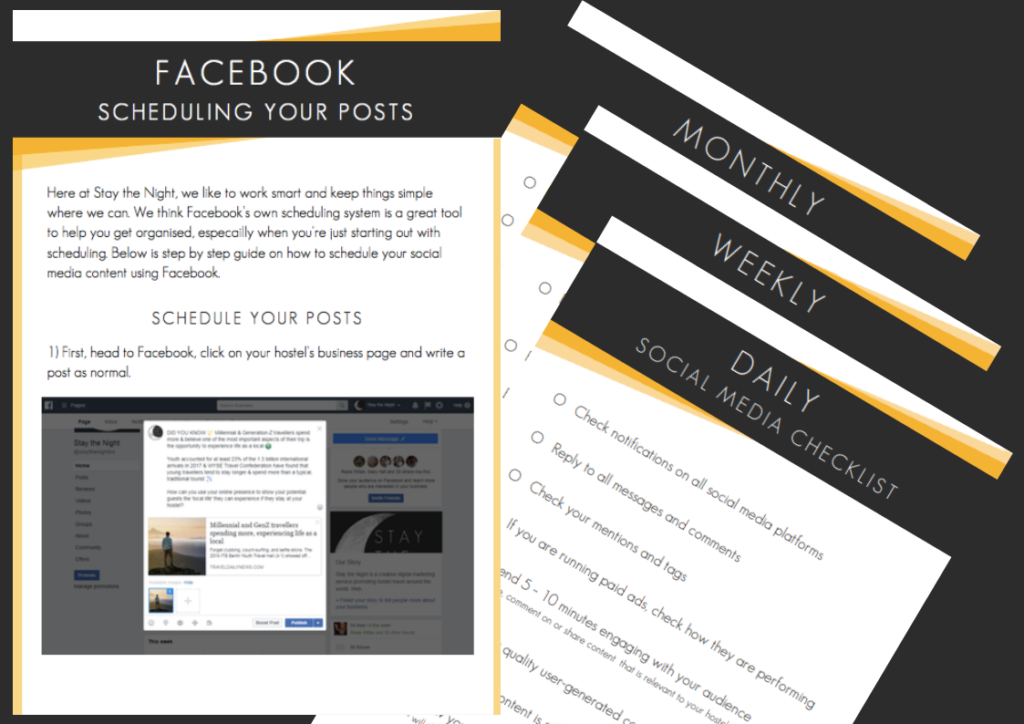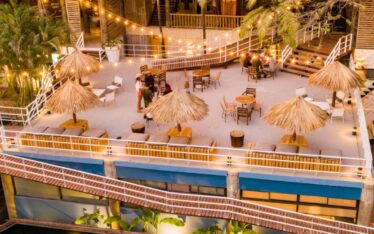Every fortnight, we give you a run down of the latest hostel industry insights and offer our take.
SITTING DOWN WITH: GENERATOR’S ALASTAIR THOMANN
“Generator Hostels was only around for three years, and was European-led: hostels are very cool in Europe. We are now trying to move away from that, to not be defined as much.” – Source.

As Generator continue their expansion into North America, CEO Alastair Thomann spoke to Breaking Travel News about his future plans and ambitions for the company.
In recent years, Generator has transformed in a big way – once a low-budget option for cash-strapped backpackers, the brand is now competing with four- and five-star hotels and appealing to travellers from all walks of life. Part of this reinvention involved dropping the word ‘hostels’ from their brand name in a move that divided opinion in the industry.
This decision was partly influenced by US travellers and their often negative perceptions of hostels. The hostel concept has a long history in Europe but has only just started to take off on the other side of the Atlantic.
Thomann explained: “We recently launched a brand change, one that returns us to the original name – Generator. Generator Hostels was only around for three years, and was European-led: hostels are very cool in Europe.
“We are now trying to move away from that, to not be defined as much. We still have that hostel vibe, but we now have expensive suites, fantastic private rooms: some of our hotels have more private rooms than dorms.”
He goes on to discuss how a growing understanding of the guest has contributed to Generator’s evolution. Recognising the value in guests who spend their money in the onsite restaurants and bars led to the company putting a big emphasis on their food and beverage (F&B) offering. In fact, their menus were specifically created to be ‘Instagrammable’ – and it succeeded, boosting food and beverage revenue to double the industry average.
Any insight into the company’s future plans? Well, things are moving quickly – a new Washington DC property has been confirmed and other US locations are on the horizon. When it comes to expansion, time is of the essence.
“It is likely it will be existing properties that we rework. We have to be quick to market and we do not have time to build,” explained Thomann, “We have to be honest, we are owned by a private equity house and they will want to exit at some point, so we have to move fast. In terms of eventual size, I cannot say, it might be 25, it might be 35 hotels, we will have to see.”
Watch this space…
TRAVEL BRANDS INCREASING SPEND ON FACEBOOK AND INSTAGRAM ADS
Overall, those surveyed said they will shift more budgets to the Instagram app as younger audiences are migrating there from Facebook, with half planning to use Instagram Stories. – Source.

Facebook and Instagram are set to become the top advertising channels for travel brands to promote their business in 2019, according to a recent report by travel marketing tech firm Sojern.
This year, 55% of the marketers surveyed said they intended to boost spending on Facebook and Instagram above all other avenues including online travel agencies and price-comparison websites. Many marketers – ourselves included – will continue to utilise Facebook’s new advertising options, such as new audience targeting options within destinations, hotels, and flights.
Overall, those surveyed said they will shift more budgets to the Instagram app as younger audiences are migrating there from Facebook, with half planning to use ads on Instagram Stories.
The power of Facebook and Instagram for hostels is huge, particularly when it comes to paid social ads. Running ads for your hostel allows you to retarget potential guests who have already shown an interest in your brand and reach new audiences to grow brand awareness. It’s no longer an option for hostels to be using paid social advertising – it is now a necessity if you want to get an edge on your competitors.
ACCOR LAUNCH NEW LIFESTYLE BRAND
TRIBE intends to meet the expectations and requirements of customers in a ground-breaking way. Whether traveling for business or leisure purposes, the TRIBE community is just like today’s men and women: independent, curious and adventurous. – Source.

Accor Hotels have launched an exciting new lifestyle brand which promises to deliver a “high-quality hotel experience at an affordable price”. TRIBE will enable travellers to ‘live, work and play in contemporary interiors’ with onsite co-working spaces, cafes and bars.
Sound familiar?
Following the successful launch of their hostel-inspired JO&JOE brand back in 2017, it seems that Accor are responding to guest demand for alternative accommodation options.
TRIBE currently consists of one 126-room property in Perth, Australia, with ten other openings already scheduled to take place by 2022 in Europe and Asia Pacific.
The launch comes shortly after a company rebrand. In a move similar to Generator’s (as described above), the group dropped the word “hotel” from their name recently.
Both Generator and Accor are evolving to attract modern travellers who are as conscious about comfort, design and experiences as they are their budget. The hostel-hotel hybrid has been born out of these rising guest expectations and it’s certainly an interesting part of the industry to keep an eye on.
SELINA REVOLUTIONISING THE MODERN OFFICE
“Our model, while upscale, has a backpacking or hostel mentality at its core, built around the idea of showing up at a location, not knowing anybody and walking away with 20 friends.” – Source.

As the number of digital nomads and remote workers continues to rise, Selina are ‘revolutionising the modern office’ with their slick facilities, creative co-working spaces and – of course – fast, free wifi.
Selina promote themselves as a network of stylish hostels for grown-ups. Their properties are kitted out with co-working spaces and “playground” areas where guests can work on collaborative projects and attend TED-style talks.
“If you go into any old hotel, it’s not easy to just say hello to someone,” says Selina’s president, Yoav Gery, “Our model, while upscale, has a backpacking or hostel mentality at its core, built around the idea of showing up at a location, not knowing anybody and walking away with 20 friends.”
With freelance work becoming more and more mainstream, you can expect to see an increase in accommodation providers catering for the co-working community.
As a location-independent business ourselves, we’re excited to see how the hostel industry adapts to this growing trend. If your hostel caters to remote workers, drop us a message – we’d love to pay you a visit!

Want to get more organised with your social media? Join our mailing list to receive TWO free downloads designed to help you get your social media in check.
With daily, weekly & monthly checklists to help get you on track PLUS our complete guide to scheduling your Facebook posts in advance, you’ll be improving the quality of your posts and spending less time online…



